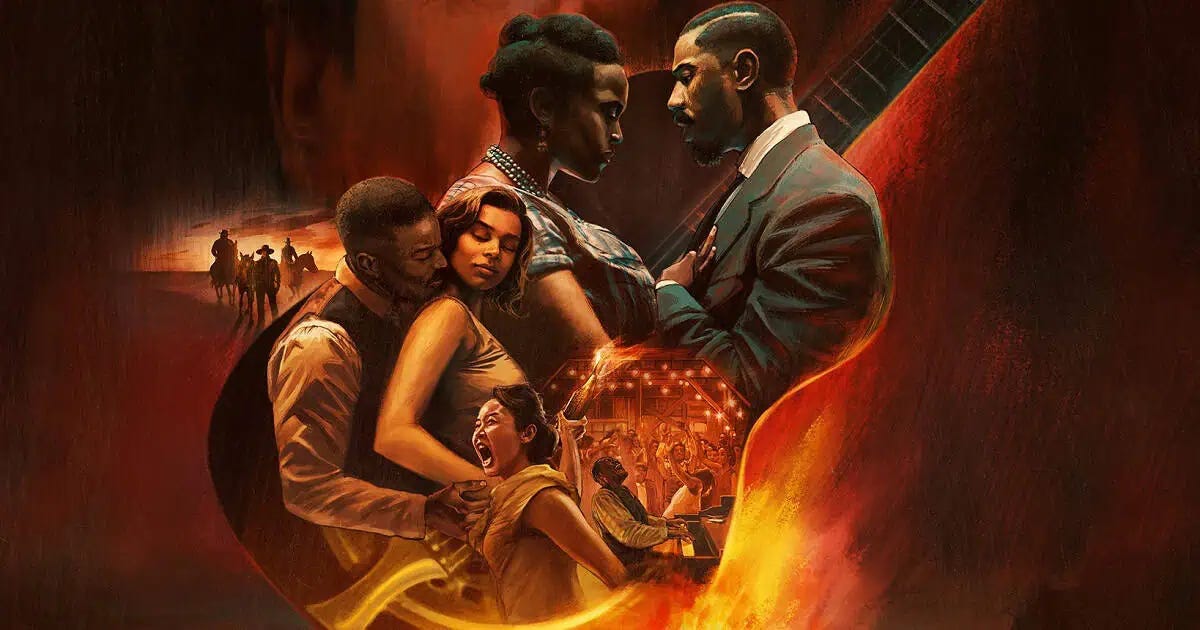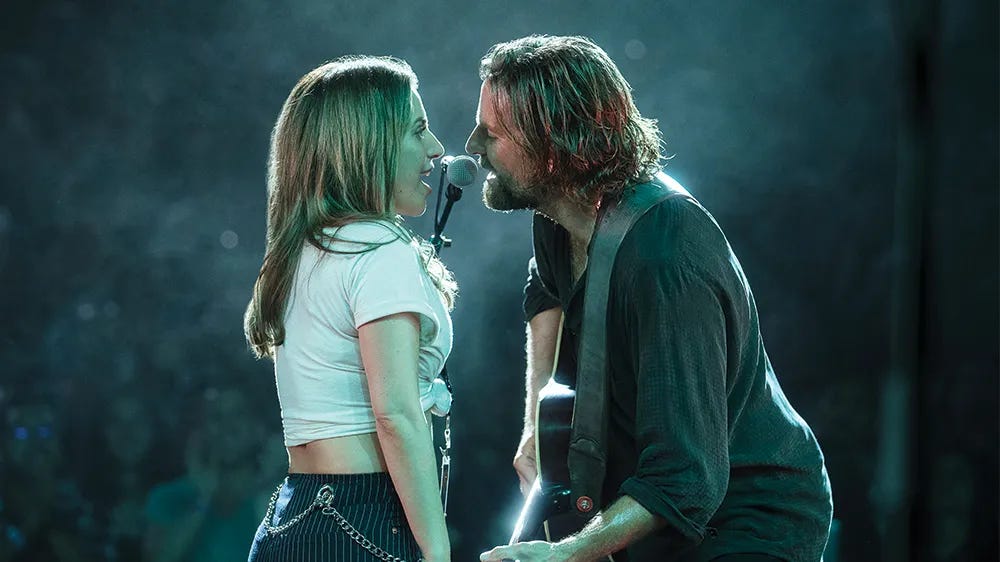Have y’all watched Sinners yet?
You should; it’s fantastic. As I watched it (and loved it), I thought about something I read in Danse Macabre by Stephen King. He discussed how critics dismiss horror that’s too successful in its intended purpose, scaring the viewer, because they tend to read with "the head rather than the heart." They analyze themes and structure while devaluing the deliberately engineered bodily responses that define the genre.
I've always considered horror a sister genre to romance. Both genres play what King calls “nerve music.” They create stories designed to evoke physical responses. And both genres often face the same critical dismissal. Despite being the publishing industry's most profitable genre, romance is frequently overlooked by critics, award committees, and the literary establishment. When readers admit a book made them sob or turned them on, their reading experience is often derided as shallow.
But a physical response is the entire point.
Reading With Your Body
Romance is nerve music. We read it with our bodies. Different subgenres create distinct reactions (as mentioned in my note about this topic below).
Romcoms should make you laugh. Angsty sagas should make you cry. Dark romance should make you anxious but also turn you on.
Yet, admitting that we seek the latter remains deeply taboo. Society's discomfort with sex creates a culture where readers feel compelled to intellectualize their reading preferences. We're taught that seeking emotional and physical responses to fiction is less worthy than pursuing intellectual stimulation. This dismissal is particularly common with open-door, high-heat books. When erotic romance is accused of being pornography, it’s often defended by pointing to positive rep and the educational value in the depiction of healthy sexual relationships.
Which is great. We need those.
But it can also sound a lot like claiming romance is head music. To a certain extent, sure, but it’s also okay for arousal to be the point of a thing. Just like it’s okay for fear to be the point of horror. Or for anxiety to be the point of a thriller. When we shy away from acknowledging that we like some things because they turn us on, we internalize the message that the only legitimate engagement with fiction is with our minds, while focusing on our bodies is embarrassing.
But this either/or framing misses what makes romance truly powerful. The genre is a unique blend of intellectual and physical elements. A good romance book creates an immersive reading experience that is challenging to achieve in any work of fiction.
As an aside, I must acknowledge that the critical bias toward head music creates insidious double standards for marginalized authors. We face more pressure to produce "educational" work rather than stories designed primarily for pleasure or sensation. A higher standard for potential value is placed on the acquisition of our books. Look at the low expectations for Sinners, despite so much star power. I suspect it’s because the film industry didn’t believe that people would come out for an R-rated Black horror film. It’s fascinating to watch the intellectualization of its success, rather than simply admitting that it got the head and heart music blend just right. It was smart, beautiful, and scary. The perfect sensory assault.
Making It Work
When I develop a book, I always think about how I want the reader to feel. This consideration shapes every decision from plot structure to dialogue.
I look for writing comps that match the emotional experience I want to create. These aren't traditional comp titles that match characters or storylines. They capture the feeling I want my readers to experience. While developing The Art of Scandal, I read, watched, and listened to media that evoked something sexy and forbidden. For August Lane, I consumed things that made my chest ache.
This approach changes how I draft and revise my work. I continuously ask: "Does this scene create the physical response I'm aiming for?" Sometimes a scene works perfectly on paper, with sharp dialogue and tight pacing, but it doesn't evoke the right bodily sensation. That's when I know something needs to change.
Romance writers often debate craft elements, such as point of view, plotting methods, and character development techniques. These discussions matter, but I've found the most helpful question is "How do I want the reader to feel in this moment?" The answer often guides me toward the right creative choices.
Words Worth Keeping
When a plot resolves, readers are satisfied, but what they remember of a novel is what they felt while reading it. Hooks may hook, twists may intrigue, tension may turn pages, and prose may dazzle, but all of those effects fade as quickly as fireworks in a night sky. Ask readers what they best remember about novels and most will say the characters, but is that accurate? It's true that characters become real to us but that is because of what they cause us to feel. Characters aren't actually real; only our own feelings are.
From The Emotional Craft of Fiction: How to Write the Story Beneath the Surface by Donald Maass
What books have played nerve music for you? Have you noticed how your body responds to different romance subgenres? Have you ever caught yourself intellectualizing your response to avoid admitting how deeply a book has affected you physically?







I can see this playing out in music as well. With he way we classify certain types of music as high quality and low quality. Brash hip hop shredding metal all designed to make you feel versus music that "smart or enlightened" people listen to that leans toward the chamber music variety.
This was a great post. As a big romance reader and fan of the new Sinners movie I heavily agree! And the comparison with horror and romance and how they bring bodily reactions is so interesting and true. That’s what makes me a fan of that work.